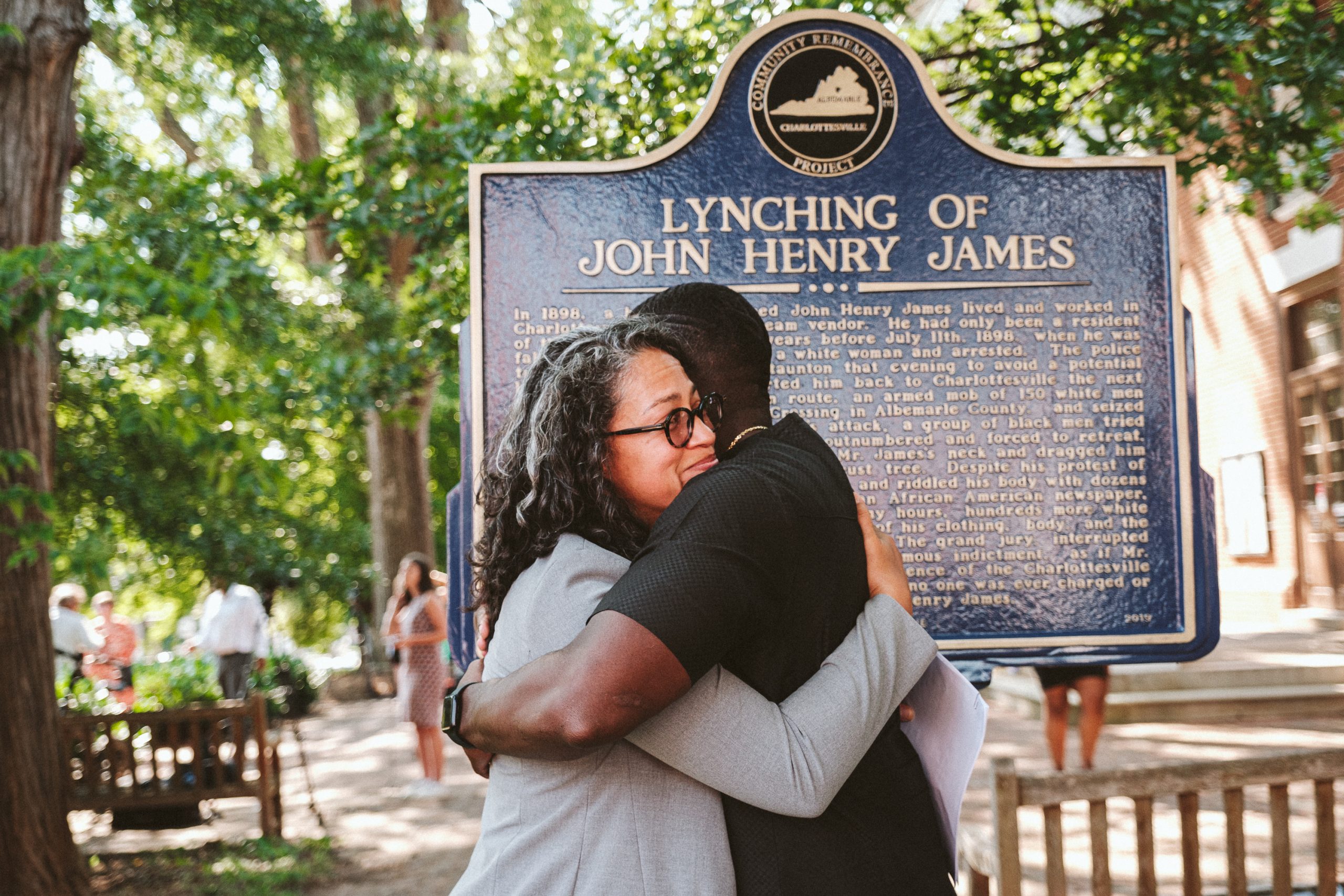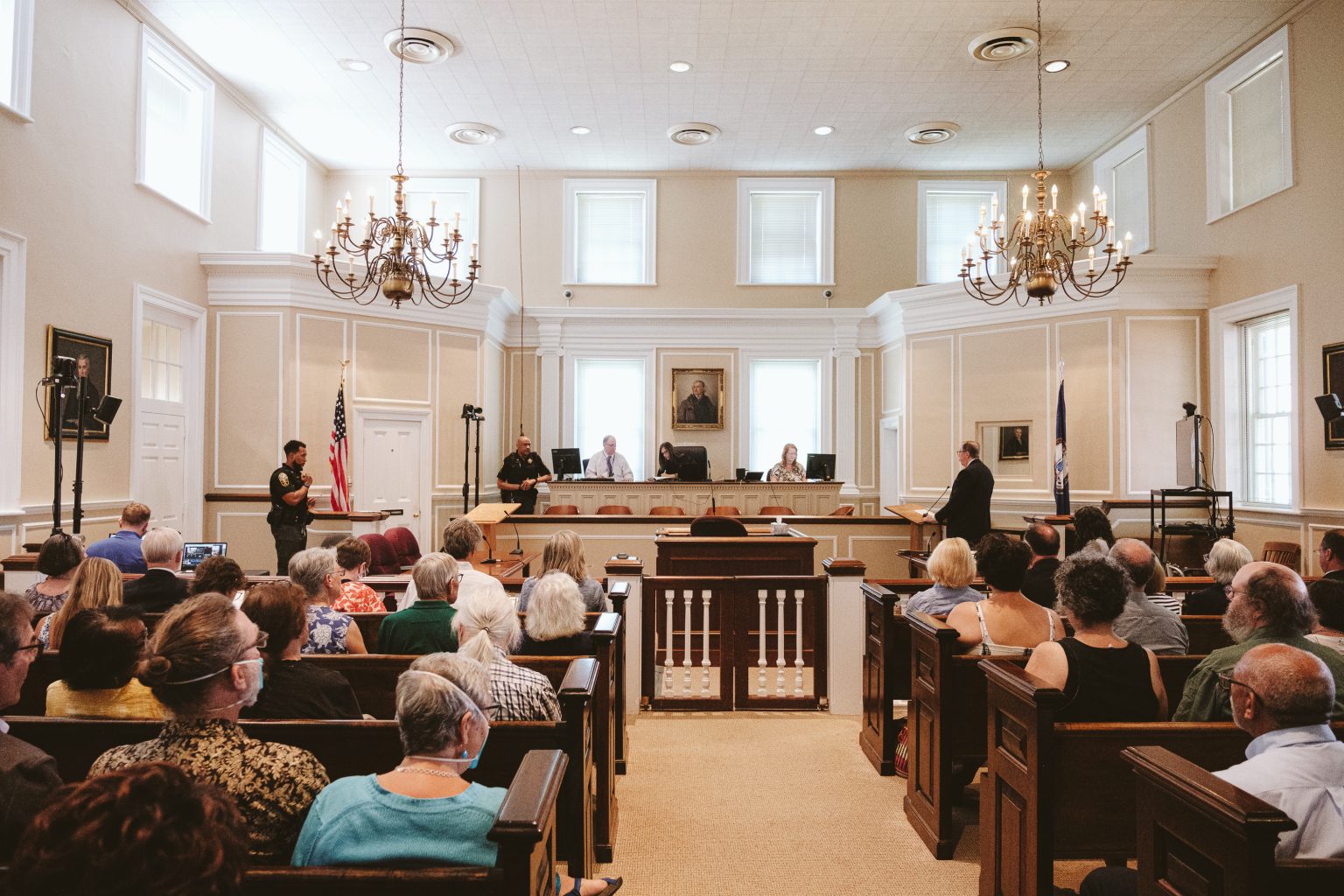Justice delayed
Lynching victim’s indictment dismissed
 Photo by Eze Amos.
Photo by Eze Amos.
Lisa Provence
7:00 a.m. Jul. 19, 2023
On July 12, the 125th anniversary of a white lynch mob murdering John Henry James, a packed courtroom in Albemarle Circuit Court applauded when a judge dismissed an indictment for rape that was handed down in 1898, even after the prosecutor and grand jury knew that James was dead. ... “A mockery of the justice system,” said Judge Cheryl Higgins. ... Albemarle Commonwealth’s Attorney Jim Hingeley’s motion to dismiss more than a century later is in itself pretty much unheard of. “It’s an effort to set the record straight 125 years later,” says Hingeley, who was “particularly disturbed” by the complicity of the justice system.
On July 11, 1898, Julia Hotopp, a 20-year-old white woman from a prominent family that owned what is now Pen Park, had been riding her horse and alleged a dark-complexioned, heavy-set man sexually assaulted her, Hingeley told the court.

Photo by Eze Amos.
James, a Black ice cream vendor, whom The Daily Progress said “somewhat fit” the description of the assailant, was arrested that day and moved to jail in Staunton to avoid already angry white citizens. ... He was returned to Charlottesville the next morning, and when the train stopped west of town at Wood’s Depot, property now owned by Farmington Country Club, he was greeted by a mob of around 150, pulled from the train despite the presence of the Albemarle sheriff and Charlottesville police chief, and hanged from a locust tree while pleading his innocence, according to the Progress.
His body was then riddled with bullet holes, and people took pieces of clothing, his body, and the locust tree as souvenirs. ... While James was being murdered, a grand jury met. Despite knowing James was dead, it proceeded to indict him for the alleged rape, which Hingeley believes was a false accusation. ... The Albemarle commonwealth’s attorney at the time, Micajah Woods, acted improperly by indicting a dead man, and did so to create justification for the lynching, says Hingeley. “They still wanted to put a formal accusation in the public record to justify the taking of his life. That bothers me.”
{snip}

